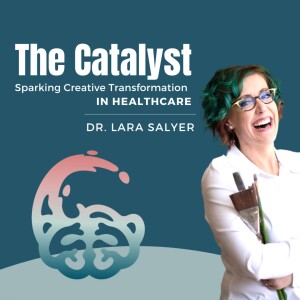
Friday Sep 09, 2022
Empathy Is the Sugar That Helps the Medicine Go Down
“The best thing you can do is find out a person's experience first before you start coming up with solutions,” explains Ashok Bhattacharya, MD, FRCP. Dr. Bhattacharya has been a psychiatrist for over 36 years and is the founder of The Empathy Clinic, a private psychiatric clinic that focuses on the use of empathy to diagnose and treat a variety of mental illnesses in both individuals and couples. He fully believes that learning to treat patients with empathy puts humanity back into medicine.
Empathy is crucial for proper diagnosis and treatment of mental illnesses because it helps practitioners get to the root of the problem. Doctors need to view things from their patients’ point of view in order to formulate the correct treatment. It can take time to develop the trust required for empathy, but it is worth the extra work to create that understanding. Dr. Bhattacharya believes disorders like PTSD and narcissism are empathy disorders and as such, can be healed through empathy. People with PTSD often feel isolated–thinking their experience cannot possibly be understood by others. But by showing these patients empathy, compassion, and kindness, they can learn to feel safe again and kickstart their healing journey.
The problem with trying to put yourself in another person’s shoes is that you have not had their same life experiences. For true empathy to be established, you must get to know your patient’s story and build trust over time. Tune into this week’s episode of The Catalyst to learn more about the healing power of empathy. Learn how to use empathy as a treatment model for mental illnesses and how it can make all the difference in patient outcomes.
Quotes
• “The tough part with empathy is to negate yourself. That means thinking, ‘what would I do in that situation or if I were in their shoes?’ Those are sympathetic ways to look at somebody, but we're actually not in somebody else's shoes, because we're not them.” (4:06-4:25 | Ashok)
• “Empathy is getting the right answer. Compassion is formulating a solution. And kindness is what you actually do about that.” (6:20-6:27 | Ashok)
• “The best thing you can do is find out that person's experience first before you start coming up with solutions.” (6:52-6:59 | Ashok)
• “We have to look after our safety first, before we jump into that water and try to save somebody else. I think it's a really key thing. Empathy isn't necessarily a quick thing. It can happen very quickly, but it can also take us time. And I think if we rush it, we actually break trust.” (10:54-11:11 | Ashok)
• “We see our clients, we start calling them patients, and we start treating them like the illness that they have. And psychiatry is particularly bad because we call a human being a schizophrenic as opposed to a human who happens to have schizophrenia. And so now that disease has become their entire identity.” (16:54-17:11 | Ashok)
• “When we put humanity back into medicine, you know what happens? People get better faster and they stay well longer, because now we're putting wellness into the story instead of illness into the story.” (17:36-17:51 | Ashok)
• “Empathy is a way of not just sharing with each other in real time, but also sharing with each other when we're gone so that we can continue that experience of making the human condition shareable.” (35:09-35:21 | Ashok)
Links
Connect with Ashok Bhattacharya:
Website: https://www.empathyclinic.com
LinkedIn Profile: https://www.linkedin.com/in/ashok-bhattacharya-687a6211
YouTube: https://www.youtube.com/channel/UCPRzM30XZ8uscgGEx1wnEtQ
Connect with Lara:
Website: https://drlarasalyer.com
Instagram: @drlarasalyer
Facebook: https://www.facebook.com/drlarasalyer
Linked-In: https://www.linkedin.com/in/drlarasalyer/
YouTube: https://www.youtube.com/c/DrLaraSalyer
TikTok: @Creativity.Doctor
No comments yet. Be the first to say something!